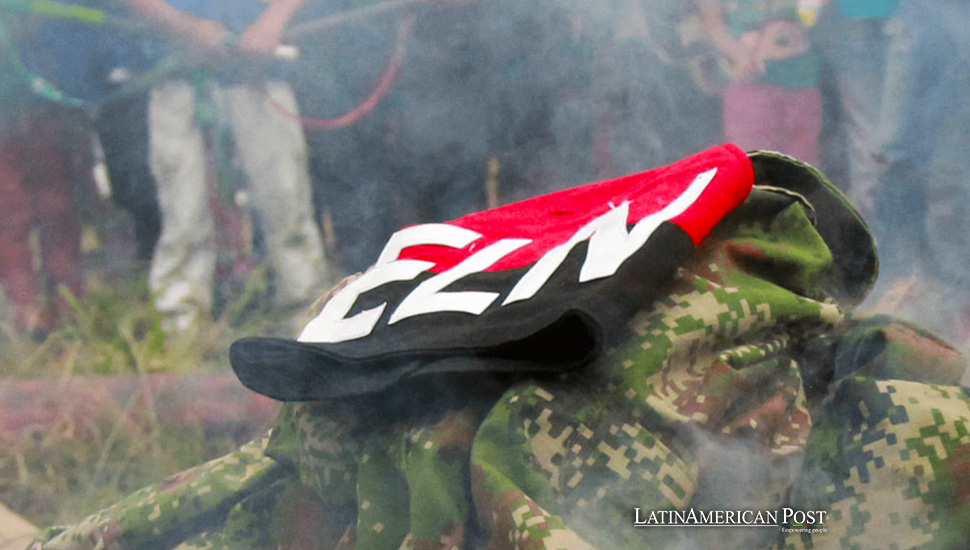Colombia’s ELN Ceasefire Extension Seeks Lasting Peace

Colombia’s government and the National Liberation Army (ELN) have agreed to extend their one-week ceasefire as they convene in Cuba to discuss crucial policies essential for a sustainable truce. The current ceasefire, in effect since August, aims to foster stability while grappling with complex humanitarian challenges.
Ceasefire Extension Amid Delicate Negotiations
Amid delicate negotiations for a lasting peace, Colombia’s government and the country’s principal remaining rebel group, the National Liberation Army (ELN), announced the extension of their ongoing ceasefire by an additional week. The decision reflects an ardent dedication to seeking enduring solutions to the nation’s longstanding conflict as delegates from both sides engage in critical deliberations in Cuba.
In a concerted statement, the government and the ELN have pledged their commitment to upholding the terms of the existing ceasefire, which was initiated in August and slated to conclude on Monday night. Central to the current ceasefire agreement is a mutual undertaking to refrain from hostile engagements while prioritizing alleviating the humanitarian plight afflicting communities impacted by protracted hostilities.
Nonetheless, the present terms of the ceasefire do not encompass provisions that prohibit the rebels from resorting to the abduction of civilians for ransom or the enlistment of minors—perturbing practices that have persisted in recent months. Concurrently, the ELN has voiced grievances regarding alleged incursions by the military into territories under their authority throughout the ceasefire period.
Renewed Commitment: Exploring Avenues for Sustainable Peace
In the joint statement, both parties underscored their ongoing commitment to exploring avenues to fortify the ceasefire, resonating with their shared determination to attain a sustainable peace framework. Notably, Colombia’s government has been fervently urging the ELN to desist from perpetrating kidnappings. In response, the rebel group has requested alternative means to secure financial resources for their operations, emphasizing their willingness to renounce kidnapping activities contingent upon the formulation of a new ceasefire accord.
Escalating tensions during October precipitated a critical juncture in the ceasefire dynamics when a faction of insurgents seized the parents of Luis Diaz, an illustrious Colombian soccer figure. Swift intervention by law enforcement facilitated the expeditious rescue of Diaz’s mother. At the same time, concerted public outcry and mediation endeavors culminated in the release of his father after a harrowing twelve-day ordeal.
The bilateral decision to prolong the ceasefire mirrors an unwavering resolve to navigate through the intricate intricacies of peace negotiations. The contingent discussions in Cuba are poised to shape the trajectory of peace-building efforts, encompassing deliberations on mitigating humanitarian crises, curbing illicit activities, and establishing a durable cessation of hostilities.
As Colombia and the ELN embark on further deliberations, the nuanced negotiations remain a pivotal juncture in the quest for enduring peace. The concerted efforts to address multifaceted challenges and redress grievances reflect a collective pursuit of sustainable peace, underpinning the invaluable imperative of forging a comprehensive peace framework resilient to the complexities of historical conflicts.
Reconciling Divergent Interests: Challenges in Early Discussions
In the nascent stages of discussions, both sides will confront the intricate task of reconciling divergent interests, seeking common ground on various critical issues, including safeguards against heinous practices, humanitarian interventions, and strategies to foster a climate conducive to sustainable reconciliation.
The ceasefire extension underscores an unwavering determination to inscribe diplomatic triumph over discord. This resolute endeavor resonates beyond the confines of individual agreements, bearing profound significance for Colombia’s social fabric and the broader landscape of peace and security in the region.
Also read: Piedad Córdoba: A Life of Controversy and Advocacy in Colombian Politics
Amidst these deliberations, the imperative to surmount inherent hurdles and carve a road map to lasting peace reverberates with unparalleled urgency. The continued commitment to dialogue and negotiation stands as a testament to the sustained pursuit of a harmonious resolution to Colombia’s protracted conflict, holding the potential to transform the nation’s trajectory and engender enduring stability and prosperity for its populace.





